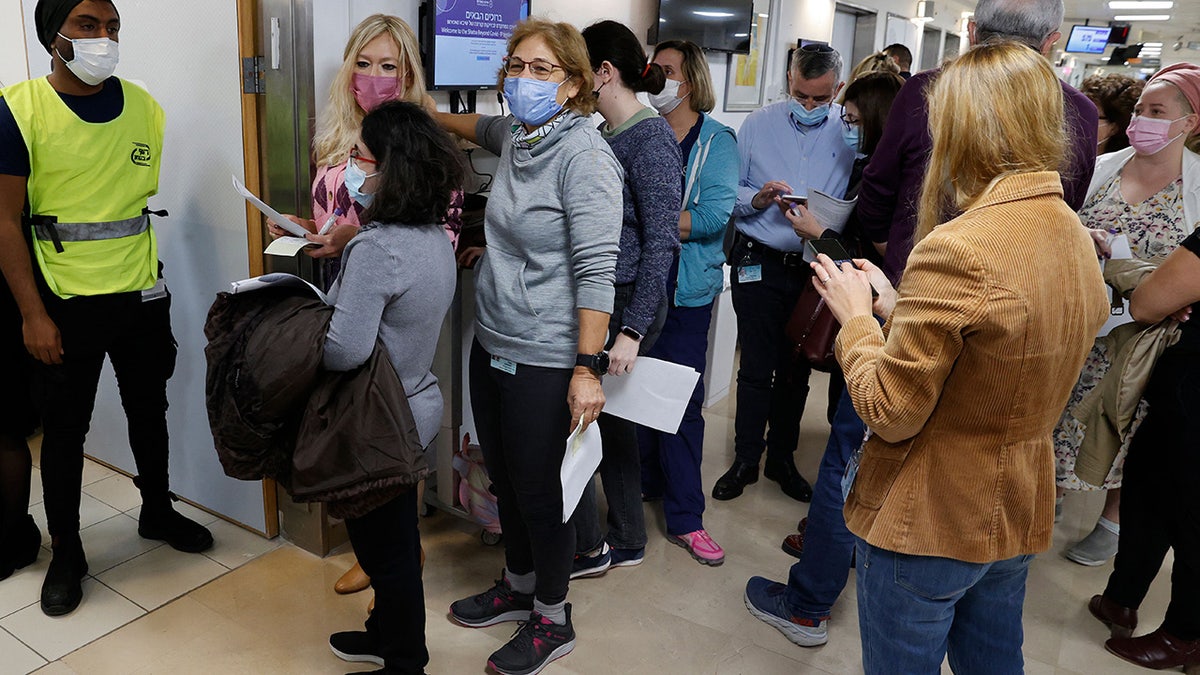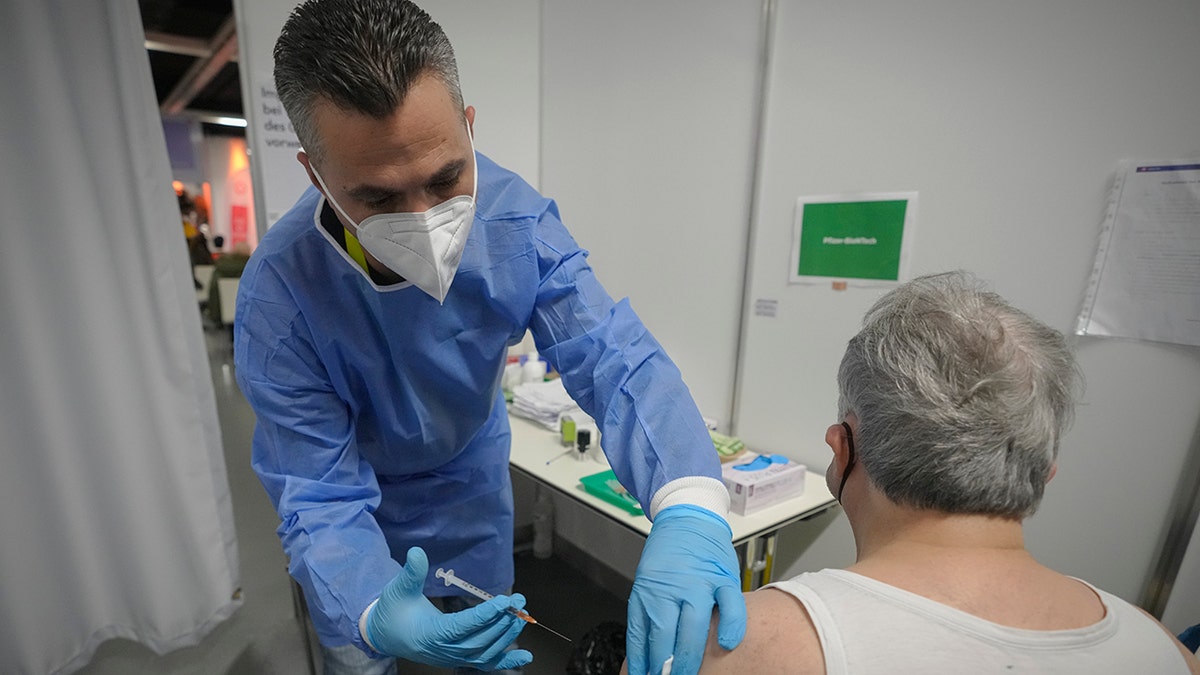Major cities ramp up vaccine mandates
Rebelle Communications CEO Laura Fink and former White House Official Ashley Davis discuss strict vaccine mandates in Democrat cities.
A hospital in Israel is set to administer a fourth COVID-19 vaccine jab on Monday to 150 health care workers to see how effective and safe another shot may be as cases continue to surge, a report said.
Bloomberg reported that the Sheba Medical Center, which is near Tel Aviv, will carry out the study in conjunction with the country’s Health Ministry. The workers taking part should have received their boosters no later than Aug. 20.

Staff volunteers line up to receive a fourth dose of the Pfizer-BioNTech COVID-19 coronavirus vaccine at the Sheba Medical Center in Ramat Gan near Tel Aviv, on December 27, 2021. (Photo by JACK GUEZ / AFP) (Photo by JACK GUEZ/AFP via Getty Images) (JACK GUEZ/AFP via Getty Images)
Gili Regev-Yochay, the study’s director, said in a statement obtained by Reuters that researchers will look into the additional dose’s effect on "the level of antibodies and morbidity and we will gauge its safety."
"We will understand whether it is worthwhile to administer a fourth shot, and to whom," she said.

A man receives a COVID-19 vaccine on the second day of a national lockdown to combat soaring coronavirus infections, in Vienna, Austria, Nov. 23, 2021. (AP Photo/Vadim Ghirda, File)
Dr. Ashish Jha, the dean of Brown University’s School of Public Health, told "Fox News Sunday" that he is skeptical that Americans will need a fourth jab.
"Part of the question is-- that we have to ask ourselves—is what are we trying to do" he said. "Are we trying to block every single infection—maybe that’s our goal and if that’s our goal maybe yes we do need a fourth shot, or are we just trying to prevent serious illness or death, which, of course, I think should be our primary goal," he said.


